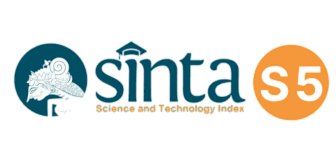An Analysis of Indonesia's National Food Estate Programme from a Food Sovereignty-based Perspective
Downloads
This study examines the food estate "strategic national programme” implemented by the Indonesian national government in two regions: Humbang Hasundutan Regency in North Sumatra and Gunung Mas Regency in Central Kalimantan. Using a qualitative research method by examining previous research work on the concept of food sovereignty and food security, and by studying mass media coverage regarding the national food estate programme, this study aims to scrutinise Indonesia's national food estate programme through a critical lens based on the ideas of food sovereignty as expounded in the 2007 Declaration of Nyéléni and examines whether the national food estate programme was designed and executed in line with the principles of food sovereignty as outlined in the Declaration. This study finds that the Indonesian government did not take into consideration the principles and practices of food sovereignty as outlined in the Declaration of Nyéléni, instead primarily relying on a conventional use of the food security approach in the execution of the national food estate programme in Humbang Hasundutan and Gunung Mas regencies, with significant consequences such as environmental degradation, economic impacts, and sociocultural and political disruptions felt by local producers and indigenous communities in regions affected by the national food estate programme.
Copyright (c) 2023 Jonathan Siborutorop

This work is licensed under a Creative Commons Attribution-NonCommercial-ShareAlike 4.0 International License.
- Copyright of this journal is possession of Editorial Board and Journal Manager, by the knowledge of the author, while the moral right of the publication belongs to the author.
- The formal legal aspect of journal publication accessibility refers to Creative Commons Atribusi-Non Commercial-Share Alike (CC BY-NC-SA), implies that publication can be used for non-commercial purposes in its original form (cannot be modified).
- Every publication (printed/electronic) are open access for educational purposes, research, and library. Other than the aims mentioned above, the editorial board is not responsible for copyright violation.












